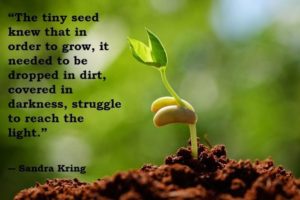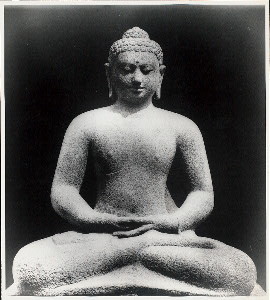 Several years ago I was traveling on business from Los Angeles to Tucson. I had a flight to catch from LA and was getting ready to leave my company’s office in the afternoon, drive to LAX, return the rental car, and fly out. One of the managers on my team was encouraging me to leave so I could make it there on time and get ahead of the afternoon rush hour traffic. I told her I was getting ready and would leave soon. She looked at me incredulously and said, “You’re not worried, are you?” To which I replied, “Worry, don’t worry. The outcome is the same.”
Several years ago I was traveling on business from Los Angeles to Tucson. I had a flight to catch from LA and was getting ready to leave my company’s office in the afternoon, drive to LAX, return the rental car, and fly out. One of the managers on my team was encouraging me to leave so I could make it there on time and get ahead of the afternoon rush hour traffic. I told her I was getting ready and would leave soon. She looked at me incredulously and said, “You’re not worried, are you?” To which I replied, “Worry, don’t worry. The outcome is the same.”
I don’t think I invented that phrase and I know for sure that I don’t always embody that point of view. However, when I can be there – that place of not worrying; of allowing things to enfold – then I feel calm and free to experience things as they are without being consumed by anxious thoughts.
When I worry, that’s all that is going on. I become consumed by it. When I worry, I’m less thoughtful, more rigid, less creative, and more likely to slip into anger and even rage.
In the travel situation, leaving the office early enough might eliminate the worry but it would not necessarily help me make the flight on time. Who knows how much traffic I would encounter? Who knows if my car would breakdown? Who knows if the rental car shuttle would leave promptly? All these things, and more, are out of my control. I did leave at a reasonable time to catch my flight, but with fewer cushions for traffic delays, etc.
By pushing away the worry, I drove more safely, spoke more clearly, and addressed people more directly and kindly. Indeed, I did make my flight, returned the rental car, and didn’t set any speed records on the highways. But, most importantly for me, my state of mind, and for how I want to live my life, I didn’t worry.
I didn’t allow my mind to go through a litany of “Oh my God, I’m never going to make it on time. Why is that person driving so slowly? Oh no another red light! I’m not going to make it. Will I be able to get on another flight? Why did that meeting run so long? I’m terrible at managing my time. Everyone expects too much of me. It’s not fair. Oh my God, a traffic jam! I’m never going to make it!” And on and on my mind would go. I know this because my mind has done this many times. I’ve worried so much that it has tied my stomach in knots and paralyzed my actions.
When I release worry and move to a place of acceptance, I have freedom to experience my world as it is and enjoy what is being presented to me. In order to release worry, I use breath awareness, Reiki, meditation, and exercise to deeply experience my body and mind in a calm state. Then, when stressful situations arise, I can call up that state of calmness, release worry, and choose how I will act and think in this moment – all the while enjoying what is happening right now.
Wishing for you the calm of not worrying because worry or don’t worry, the outcome is the same.

 I did it! Yes! Three cheers! High-fives! And all that! I completed my first half marathon this month! I also did it in a respectable finishing time and was still able to hike around the park in the afternoon and walk down the stairs at home the next day!
I did it! Yes! Three cheers! High-fives! And all that! I completed my first half marathon this month! I also did it in a respectable finishing time and was still able to hike around the park in the afternoon and walk down the stairs at home the next day!
 It’s March. Remember the glow of the New Year that we felt in January? Perhaps you’re also remembering a resolution or two that you set. How are those resolutions going? If some of them were around establishing a new habit – maybe it was related to exercise or healthy eating or meditating more often – it takes awhile for a new habit to take root. (In the popular self-help culture, people usually state that it takes 21 or 28 days to create a new habit.)
It’s March. Remember the glow of the New Year that we felt in January? Perhaps you’re also remembering a resolution or two that you set. How are those resolutions going? If some of them were around establishing a new habit – maybe it was related to exercise or healthy eating or meditating more often – it takes awhile for a new habit to take root. (In the popular self-help culture, people usually state that it takes 21 or 28 days to create a new habit.) Many people wonder, why should I meditate? What are the benefits? To me, the short answer is: “Because it works.” Then, of course, the next questions are: “How does it work? How will it help?” Simply put, meditation works by increasing awareness. To be mindful is to be aware of one’s experiences, both internal and external experiences. Mindfulness-based meditation helps one to become aware. By being aware, we are able to make better decisions, manage our mood, and activate more parts of our brain.
Many people wonder, why should I meditate? What are the benefits? To me, the short answer is: “Because it works.” Then, of course, the next questions are: “How does it work? How will it help?” Simply put, meditation works by increasing awareness. To be mindful is to be aware of one’s experiences, both internal and external experiences. Mindfulness-based meditation helps one to become aware. By being aware, we are able to make better decisions, manage our mood, and activate more parts of our brain. Sometimes I wake up at 3:30 a.m. and can’t fall back to sleep. Does this type of insomnia ever happen to you? Is it a crisis for you? Do you lie in bed waiting for the alarm to go off or the sun to come up? Are your first thoughts? “I’m awake already??!! This is going to ruin my day.”
Sometimes I wake up at 3:30 a.m. and can’t fall back to sleep. Does this type of insomnia ever happen to you? Is it a crisis for you? Do you lie in bed waiting for the alarm to go off or the sun to come up? Are your first thoughts? “I’m awake already??!! This is going to ruin my day.”

 “If it doesn’t serve to uplift your spirit, let it go.”
“If it doesn’t serve to uplift your spirit, let it go.” There are many fallacies in the Reiki community about what Reiki is, how it is practiced, and what Reiki practitioners can do. I completely understand how these have developed. One of the reasons is because Reiki is so malleable. It perfectly blends with other traditions, practices, and treatments. Another reason for these fallacies is because Reiki practice and teaching has not been standardize so the beautiful people who have learned it have morphed it into things that are as unique as each of them.
There are many fallacies in the Reiki community about what Reiki is, how it is practiced, and what Reiki practitioners can do. I completely understand how these have developed. One of the reasons is because Reiki is so malleable. It perfectly blends with other traditions, practices, and treatments. Another reason for these fallacies is because Reiki practice and teaching has not been standardize so the beautiful people who have learned it have morphed it into things that are as unique as each of them.